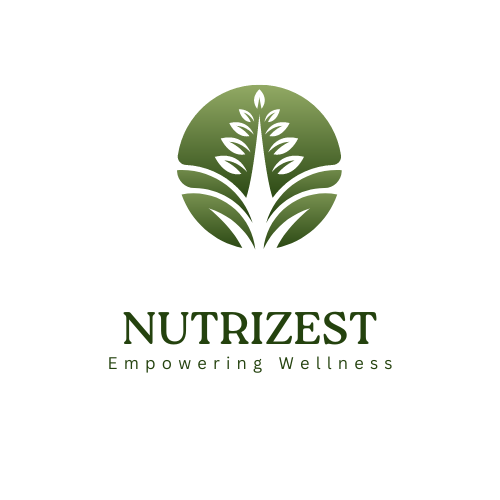Vitamins are essential nutrients that our bodies need to function optimally. They play crucial roles in various bodily processes, from maintaining healthy skin to supporting the immune system. In this detailed guide, we’ll delve into what vitamins are, their importance, the different types, and the best sources to incorporate into your diet.
What Are Vitamins?
Vitamins are organic compounds that our bodies require in small amounts for various metabolic processes. They are categorized into two main types: water-soluble and fat-soluble.
- Water-Soluble Vitamins: These include the B-complex vitamins and vitamin C. They dissolve in water and are not stored in the body, meaning they need to be consumed regularly.
- Fat-Soluble Vitamins: These include vitamins A, D, E, and K. They dissolve in fats and are stored in the body’s fatty tissues and liver.
Importance of Vitamins
Vitamins are vital for numerous bodily functions, including:
- Energy Production: Vitamins like B1, B2, B3, B5, B6, B7, B9, and B12 help convert food into energy.
- Immune Function: Vitamins A, C, and D support a healthy immune system.
- Bone Health: Vitamins D and K are crucial for maintaining strong bones.
- Blood Clotting: Vitamin K is essential for blood coagulation.
- Antioxidant Protection: Vitamins C and E act as antioxidants, protecting cells from damage by free radicals.
Types of Vitamins and Their Functions
- Vitamin A (Retinol)
- Functions: Important for vision, immune function, and skin health.
- Sources: Liver, fish oils, eggs, dairy products, and orange and green leafy vegetables.
- Vitamin B Complex
- B1 (Thiamine): Helps convert nutrients into energy. Found in whole grains, pork, and legumes.
- B2 (Riboflavin): Involved in energy production and cellular function. Sources include dairy products, eggs, and green vegetables.
- B3 (Niacin): Supports digestive health and nerve function. Found in poultry, fish, and whole grains.
- B5 (Pantothenic Acid): Essential for fatty acid metabolism. Sources include meats, avocados, and yogurt.
- B6 (Pyridoxine): Important for amino acid metabolism and red blood cell production. Found in fish, bananas, and chickpeas.
- B7 (Biotin): Plays a key role in the health of hair, skin, and nails. Sources include eggs, nuts, and seeds.
- B9 (Folate): Crucial for DNA synthesis and cell division. Found in leafy greens, beans, and fortified cereals.
- B12 (Cobalamin): Necessary for nerve function and red blood cell formation. Sources include meat, fish, and dairy products.
- Vitamin C (Ascorbic Acid)
- Functions: Essential for the growth and repair of tissues, immune function, and antioxidant protection.
- Sources: Citrus fruits, strawberries, bell peppers, and broccoli.
- Vitamin D
- Functions: Promotes calcium absorption and bone health.
- Sources: Sunlight exposure, fatty fish, fortified dairy products, and egg yolks.
- Vitamin E
- Functions: Acts as an antioxidant, protecting cells from damage.
- Sources: Nuts, seeds, spinach, and broccoli.
- Vitamin K
- Functions: Important for blood clotting and bone health.
- Sources: Green leafy vegetables, broccoli, and Brussels sprouts.
Here are seven powerful benefits of vitamins:
- Supporting Immune Function:
- Vitamins such as vitamin C, vitamin D, and vitamin A are known for their immune-boosting properties.
- Vitamin C acts as an antioxidant, helping to protect cells from damage and supporting the immune system’s response to infections.
- Vitamin D plays a role in immune regulation, and adequate levels are linked to reduced risk of respiratory infections and improved immune function.
- Vitamin A is important for maintaining the integrity of mucosal barriers in the respiratory and gastrointestinal systems, enhancing immune defence against pathogens.
- Promoting Skin Health:
- Vitamin E is a potent antioxidant that helps protect skin cells from oxidative damage caused by free radicals and UV radiation.
- Vitamin C supports collagen synthesis, which is essential for skin elasticity, wound healing, and maintaining a healthy skin barrier.
- Vitamin A regulates skin cell growth and differentiation, promoting healthy skin structure and reducing the risk of skin conditions like acne and eczema.
- Boosting Energy Levels:
- B-complex vitamins, including vitamin B1 (thiamine), vitamin B2 (riboflavin), vitamin B3 (niacin), vitamin B5 (pantothenic acid), vitamin B6, vitamin B7 (biotin), vitamin B9 (folate), and vitamin B12, play vital roles in energy metabolism.
- These vitamins help convert carbohydrates, fats, and proteins from food into energy molecules like ATP (adenosine triphosphate) that fuel cellular processes and support overall energy levels.
- Enhancing Bone Health:
- Vitamin D plays a crucial role in calcium absorption and bone mineralization, supporting the development and maintenance of healthy bones and teeth.
- Vitamin K contributes to bone health by regulating calcium deposition in bones and preventing excessive calcium build-up in blood vessels.
- Supporting Cognitive Function:
- B vitamins, particularly vitamin B12, vitamin B6, and folate, are essential for neurological function and cognitive health.
- Vitamin B12 is involved in nerve cell maintenance, myelin sheath formation, and neurotransmitter synthesis, supporting memory, concentration, and overall brain function.
- Folate and vitamin B6 play roles in neurotransmitter synthesis and mood regulation, contributing to mental well-being and cognitive performance.
- Protecting Eye Health:
- Vitamins A, C, and E, as well as certain carotenoids like lutein and zeaxanthin, play key roles in maintaining eye health and vision.
- Vitamin A is essential for the production of rhodopsin, a pigment in the retina that helps with low-light vision.
- Vitamin C and vitamin E act as antioxidants, protecting eye tissues from oxidative damage and reducing the risk of age-related macular degeneration and cataracts.
- Lutein and zeaxanthin help filter harmful blue light and protect against damage from ultraviolet radiation.
- Supporting Heart Health:
- Vitamin B3 (niacin) helps raise HDL (good) cholesterol levels and lower LDL (bad) cholesterol and triglycerides, reducing the risk of cardiovascular disease.
- Vitamin K supports heart health by regulating calcium deposition in blood vessels, preventing calcification and arterial stiffness.
- Vitamin C and vitamin E act as antioxidants, protecting blood vessels from oxidative damage and inflammation, which are risk factors for heart disease.
Best Sources of Vitamins
Dietary Sources:
- Fruits and Vegetables: Rich in vitamins A, C, K, and many B vitamins.
- Meats and Fish: Excellent sources of B vitamins and vitamin D.
- Dairy Products: Provide vitamins A, D, and B12.
- Nuts and Seeds: Packed with vitamin E and B vitamins.
- Whole Grains: Contain B vitamins like B1, B2, B3, and B9.
Supplementation: While it’s best to get vitamins from food, supplements can help fill in gaps in your diet. Consult with a healthcare provider before starting any supplement regimen to ensure it’s necessary and safe.
Signs of Vitamin Deficiency
Vitamin deficiencies can lead to a variety of health problems:
- Vitamin A: Night blindness, dry skin.
- B Vitamins: Fatigue, anaemia, skin disorders, nerve damage.
- Vitamin C: Scurvy, characterized by bleeding gums and fatigue.
- Vitamin D: Rickets in children, osteomalacia in adults.
- Vitamin E: Neurological problems.
- Vitamin K: Excessive bleeding.
Conclusion
Vitamins are indispensable for maintaining good health and preventing diseases. By eating a balanced diet rich in fruits, vegetables, whole grains, proteins, and healthy fats, you can ensure you’re getting a sufficient intake of these vital nutrients. Remember, moderation is key, as both deficiencies and excesses can have health implications. If you suspect you have a vitamin deficiency or are considering supplements, consult with a healthcare professional to get personalized advice.
Links

